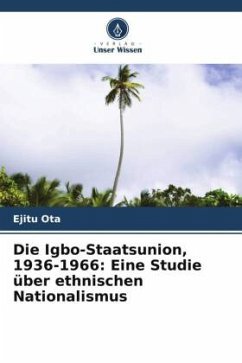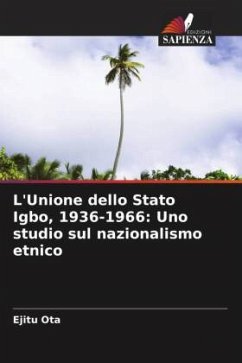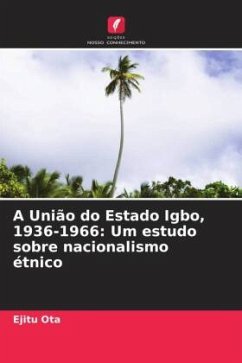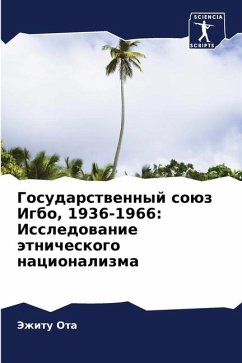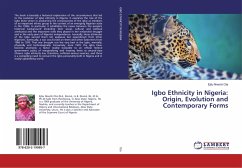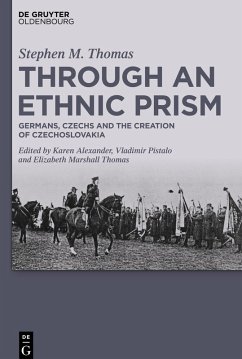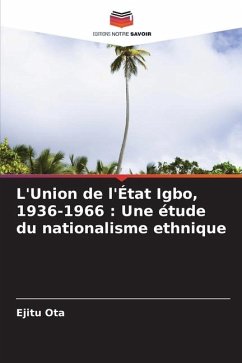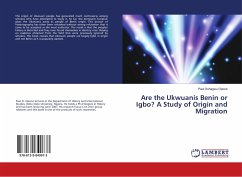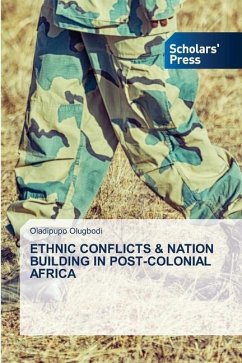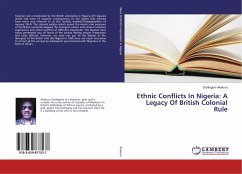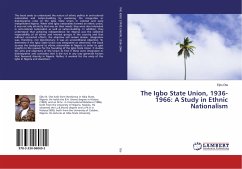
The Igbo State Union, 1936-1966: A Study in Ethnic Nationalism
Versandkostenfrei!
Versandfertig in 6-10 Tagen
32,99 €
inkl. MwSt.

PAYBACK Punkte
16 °P sammeln!
This book seeks to understand the nature of ethnic politics in anti-colonial nationalism and nation-building by examining the integrative or disintegrative roles of the Igbo State Union in colonial and early independent Nigeria. When elite Igbo nationalists formed an ethnic union, it was not only ethnicity that was on their minds: they were also interested in anti-colonial nationalism as well as nation-building. In addition, they understood that achieving independence for Nigeria was the collective responsibility of all ethnic and interest groups in the country and that without concerted effor...
This book seeks to understand the nature of ethnic politics in anti-colonial nationalism and nation-building by examining the integrative or disintegrative roles of the Igbo State Union in colonial and early independent Nigeria. When elite Igbo nationalists formed an ethnic union, it was not only ethnicity that was on their minds: they were also interested in anti-colonial nationalism as well as nation-building. In addition, they understood that achieving independence for Nigeria was the collective responsibility of all ethnic and interest groups in the country and that without concerted efforts, the objective will remain elusive. Integration was, therefore, not discretionary; it was an unconditional objection. To determine if the Igbo State Union was integrative or otherwise, the book surveys the background to ethnic nationalism in Nigeria in order to gain insights to the reasons for the founding of the Igbo State Union. It studies the aims and objectives of the Union to find ifthese were integrative or disintegrative and concludes that it did not in any way generate factors that favoured disunity in Nigeria. Rather, it worked for the unity of the Igbo in Nigeria and elsewhere.



